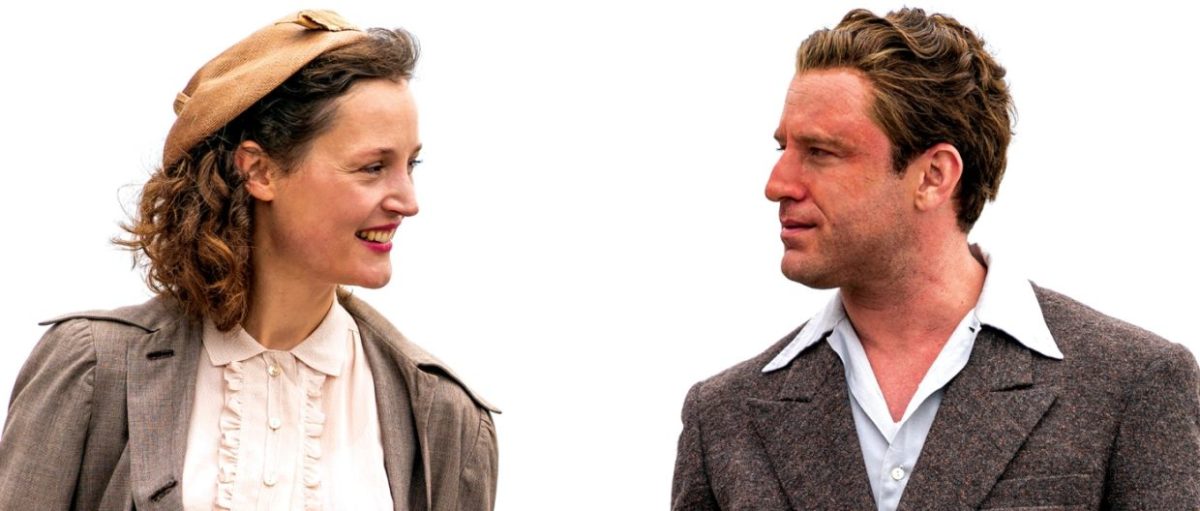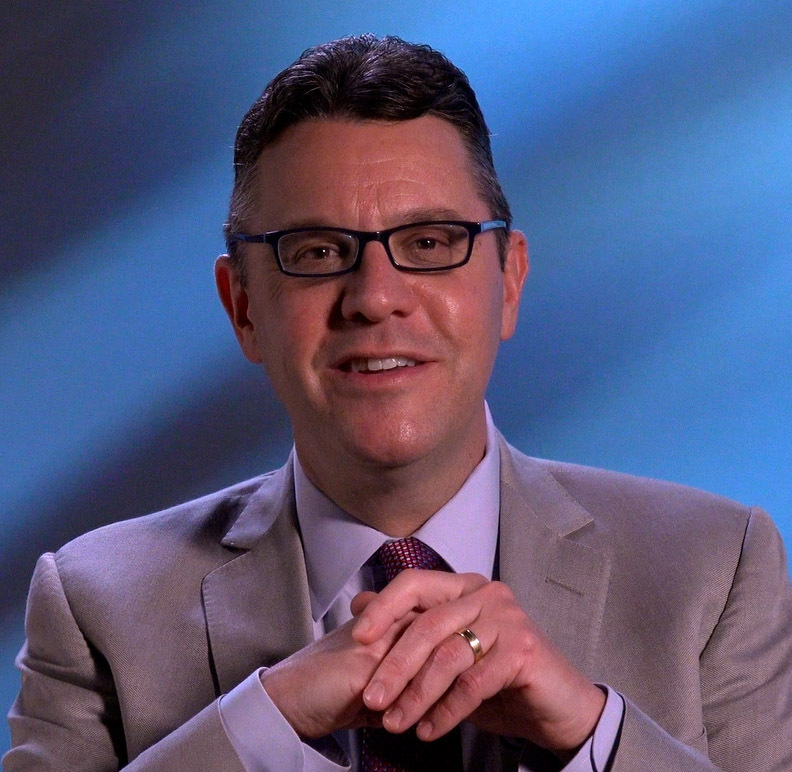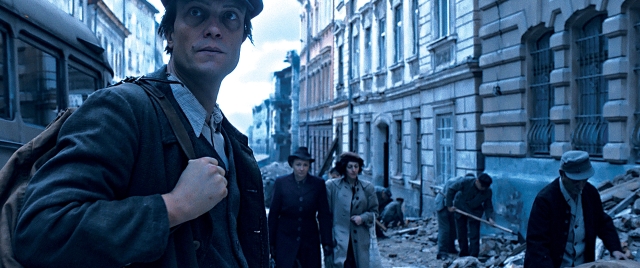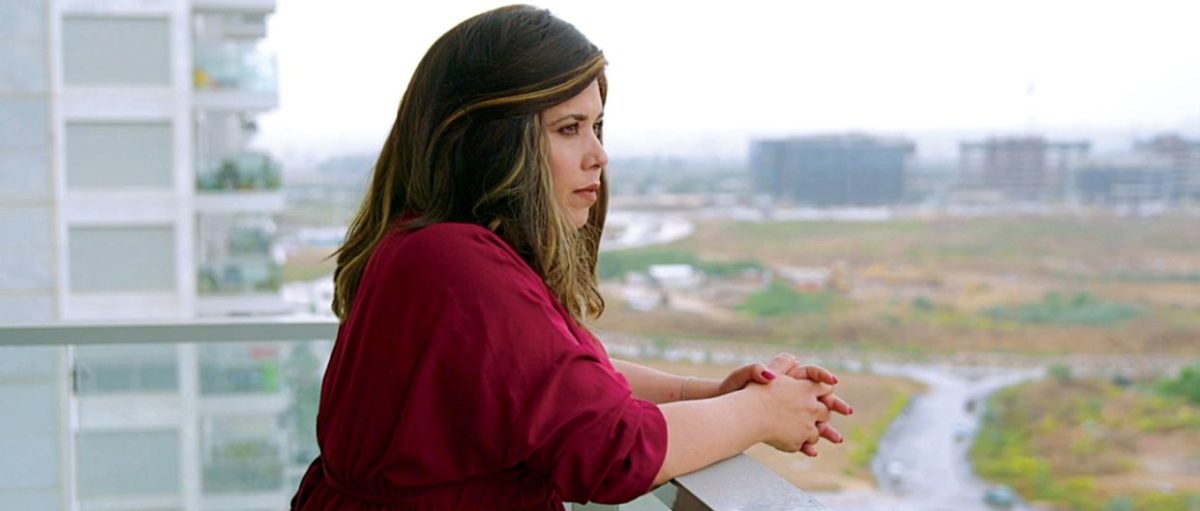Sandy Springs is home to one of the metro area’s largest Jewish communities. And it’s long been a bastion for the Atlanta Jewish Film Festival, one of the largest of its kind in the world.
The AJFF returns for a 22nd year Feb. 16-27 in an all-virtual format due to the latest wave of the COVID-19 pandemic.
Founded by the Atlanta office of the American Jewish Committee and now an independent nonprofit, the AJFF long screened some films at the former Lefont arthouse theater in Sandy Springs. In recent years, it has held opening night at the Sandy Springs Performing Arts Center at City Springs. In 2020, the festival was forced into a virtual streaming format by the pandemic, then returned last year in a mini-festival format with a hybrid of stream and in-theater screenings. An initial plan to make 2022 hybrid as well changed in January as the coronavirus’s omicron variant took hold. Hybrid may be a long-term future for the festival.

In streaming form, the AJFF still has an impressive slate of more than 50 films from 18 countries and many guest filmmakers and actors. Opening night will feature “The Survivor,” a drama based on the true story of a boxer forced to fight in Nazi concentration camps. Director Barry Levinson, known for such hits as “The Natural” and Best Picture Oscar-winner “Rain Man,” will appear in a virtual interview.
The closing night picture is “Women of Valor,” a documentary about an activist’s efforts to gain women in an ultra-Orthodox Haredi community the right to run for political office. Among many other films is the thriller “Plan A,” based on the true story of a post-World War II group that plotted revenge for the Holocaust by poisoning a German city’s water supply.
Tickets go on sale Feb. 9. For full details, see ajff.org.
Kenny Blank is the AJFF’s longtime executive director. The son of Arthur Blank, the Home Depot co-founder and owner of the Atlanta Falcons and Atlanta United, Kenny Blank also continues the family tradition of philanthropy. The Buckhead resident is on the board of the family’s foundation as well as such eminent organizations as the Woodruff Arts Center. SandySprings.com asked him about this year’s festival and what Sandy Springs means to its success.
The AJFF and movies in general have been forced to make a lot of changes in response to the pandemic, from the return of old-school drive-ins to the acceleration of streaming. Which of these did the AJFF see coming and which were surprises? Any predictions on which stay around long-term?
We’ve made many pivots throughout the past couple years of pandemic uncertainty; however the old adage still stands: constraints beget innovation and creativity. Our staff has learned and adapted tremendously, our board has steered our process and decision-making brilliantly, and our longtime benefactors, donors and sponsors have stood by us through thick and thin, all the while trusting our judgment as we aim to deliver a world-class festival regardless of global constraints. We see virtual as not a replacement to the in-theater experience, rather an augmentation to it. We see Zoom as an effective way to bring more voices, more perspectives, more faces into the fold. We see improvements to closed captioning offerings and expanded film viewing windows via our Virtual Cinema as a means to expand accessibility, meeting audiences where they are and where they feel comfortable. The options are endless so long as we lean into innovation – that said, we cannot wait to be back in theaters with our audience once the pandemic slows once and for all.
Film festivals often play several roles at once — curating films, celebrating culture, serving as a see-and-be-seen communal event. What is the AJFF’s cultural role these days and how are some of those pandemic changes altering that?
Our mission, informed by our founding partner American Jewish Committee, is to build bridges of understanding and reach diverse audiences to facilitate meaningful interactions regardless of race, religion or background. We fulfill this mission through the power of film – regardless of how and where it is event-ized or screened – and we do so with special attention to maintain a Jewish lens. For 22 years, we’ve been a core staple to the Atlanta arts scene for that very reason and now, more than ever, we’re becoming even more intrinsically connected to Georgia’s burgeoning film industry. Beyond the cultural impact of our organization, we aim to expand our foothold in the creative and economic ecosystem provided by the $4 billion direct spending from film and television in the state this past year, reaching into our own creative community for all productions, designs, marketing support, community engagement partnerships, and supporting our local craftspeople as much as possible through our own programming needs.
Sandy Springs has long had a large Jewish community and soon will be home to a new state Holocaust memorial. What do you see as Sandy Springs’ place in the metro area’s Jewish life? Has it waxed or waned over time?
It’s no surprise that Sandy Springs is an essential extension of our roots in Atlanta. With so much of our core audience living, working, and nesting in Sandy Springs, it has become an essential hub of activity for all things AJFF, a lifeblood of sorts – from our community volunteers and donors, to the restaurant partners, and most importantly the City of Sandy Springs [and] mayor and City Council that support us and host us at our anchor location, the Sandy Springs Performing Arts Center, where we hope to return in the near future. Our love for Sandy Springs is as deep as our love for the community we serve. It is a bustling center for Jewish life and remains at the heart of the Atlanta Jewish Film Festival. We cannot thank the city of Sandy Springs enough for its abundant partnerships, support, and participation in AJFF.
Sandy Springs has put significant resources into the arts at the City Springs civic center. What has that meant for organizations and events like yours?
Prior to our pivot to a 100% virtual festival for its 22nd edition, Sandy Springs Performing Arts Center was slated to be our Opening Night venue. We were thrilled to again reconvene with our fans in-person after yet another pandemic year. However, COVID had other plans and for the safety of our staff, board, partners, volunteers, seasonal support, and ultimately, our audience at large, we made the difficult decision to pivot to 100% virtual. That said, we cannot wait to light up the big screen at SSPAC as soon as it is safe to do so.
You serve on the boards of some other major arts organizations, such as the Woodruff Arts Center. How is arts funding and attendance doing in general in this pandemic time?
This is where Atlanta business, philanthropists and constituents shine: no matter what, Atlanta shows up for its beloved organizations. And while organizations of all sizes are faced with difficult decisions considering the pandemic, our partners, donors, and sponsors move mountains to keep our storied institutions afloat, even in the roughest of tides. Speaking on behalf of AJFF, we’re beyond humbled by the support and generosity of our corporate and philanthropic supporters.
You have an interesting background that includes TV news and communications for Atlanta Mayors Maynard Jackson and Bill Campbell. How have those experiences informed your work at AJFF? Do you think about the films’ community impact differently than you otherwise would, for example?
Our personal and professional histories all shape our community view, and certainly have helped to inform my approach to leading the Atlanta Jewish Film Festival. My time in the Mayor’s Office deepened my appreciation for what a vibrant city we have here, full of rich history, extraordinary talents, and enormous influence on the national agenda — all qualities that we seek to tap into at the film festival. My past experience as a TV news producer has been invaluable in sharpening my programming instincts, how to create a well-rounded film lineup that covers a broad range of themes, genres and subject matter, and pull in a variety of community voices, experts and film artists into the conversation.
Anything else you would like to add?
If I were to point to the key ingredients to our success as the world’s premier Jewish film festival, it would be the exacting standards of excellence that our entire team — our staff, our volunteers, and partners — bring to this endeavor, and the sense of ownership and pride felt by our audience, donors, and larger community. This is THEIR Atlanta Jewish Film Festival, and they support this organization with a deep appreciation and affection for the transformative impact it has on those who experience these gifts of cinematic storytelling.





